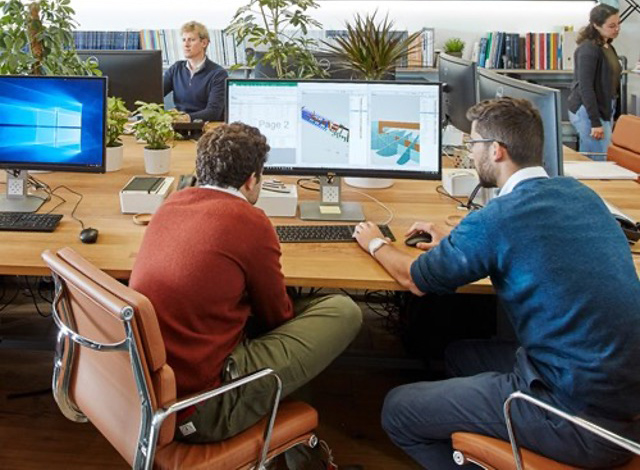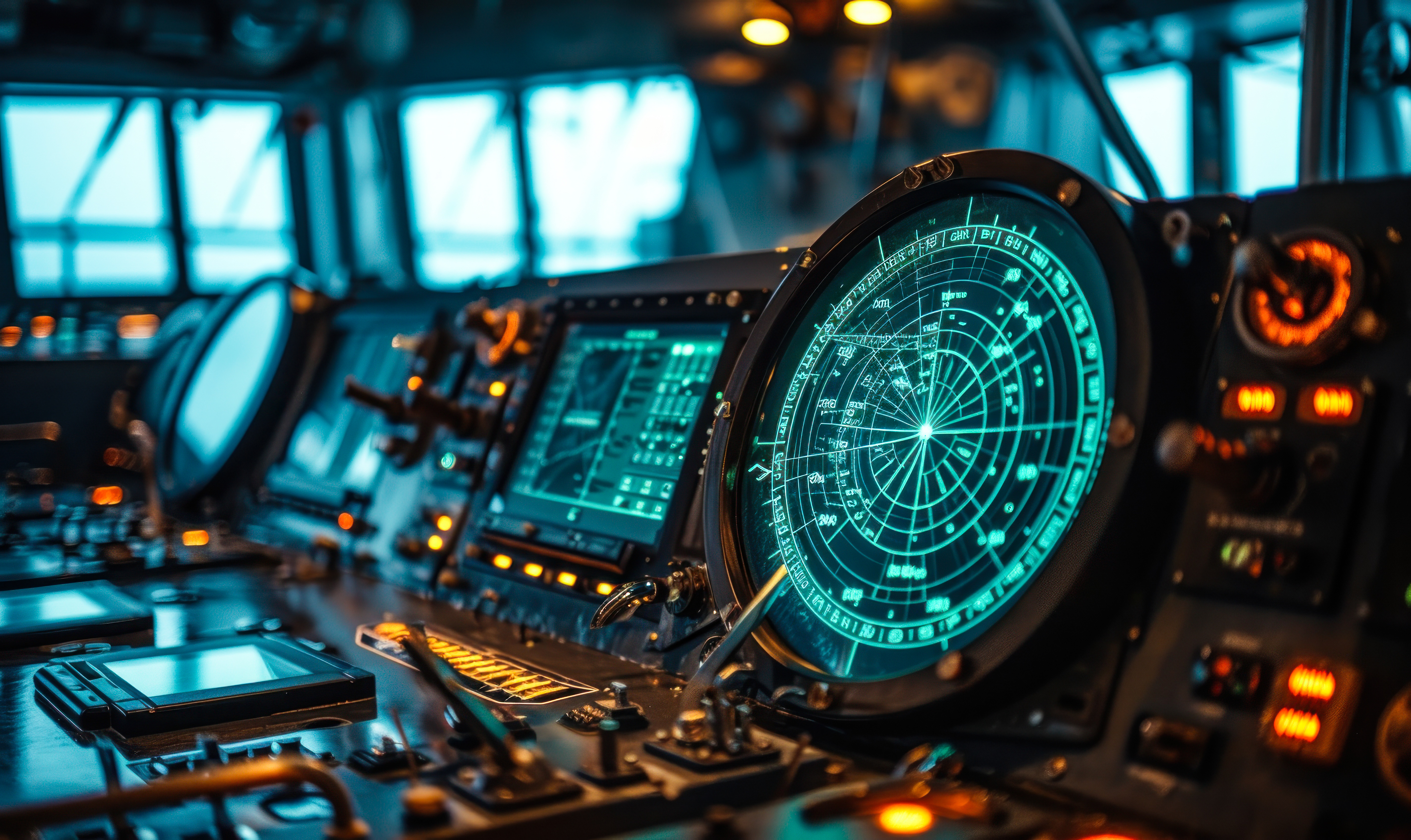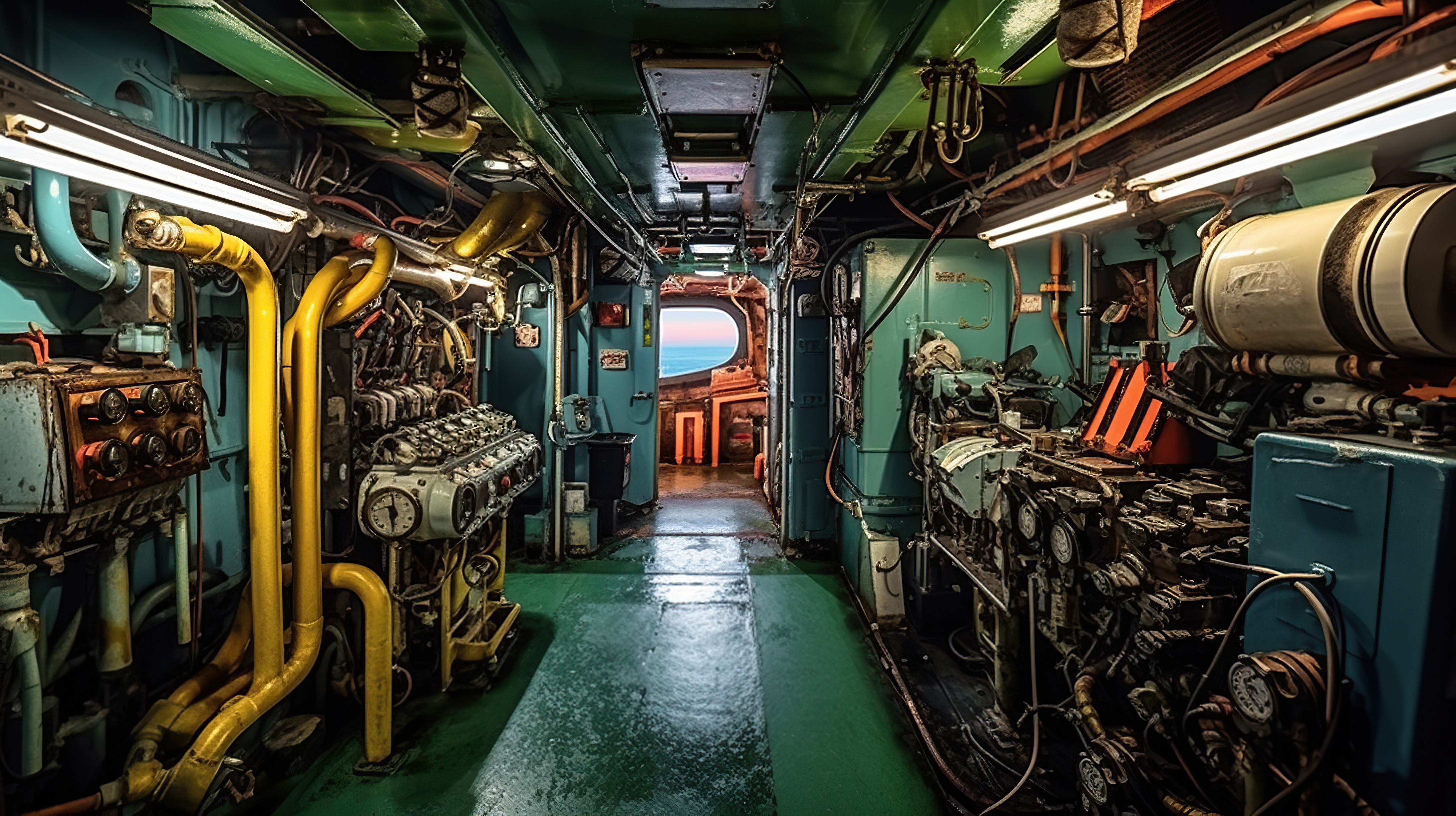
Marine Engineer
Welcome, young engineering enthusiasts!
This includes a wide range of systems like propulsion mechanics, power generation, fuel systems, and more.

Marine engineers are responsible for operating, maintaining, and repairing all major mechanical and engineered equipment on these vessels. They work with various engineering disciplines, including mechanical, electrical, and computer engineering, to ensure the smooth operation of marine vehicles and structures.
Marine Engineers design the systems on-board ships, boats, and submarines.
Their job is to:
We design so that everything stays safe when things go wrong!


Marine Engineering at BMT Design systems to make sure the ship can do what it is supposed to, and that all equipment will work.
Marine engineers need to be logical thinkers with the creativity to find innovative solutions, who work well as part of a team. We work closely with Naval Architects and Mission Systems Engineers.

Marine Engineering is a broad thing. These are all within the responsibility of the Marine Engineer.
Entering a career in Marine Engineering involves a combination of education, skill development, and professional experience.
Here’s a step-by-step guide on how to pursue a career in Marine Engineering globally:
Degree route
Attend: Sixth form or college
Qualification:
Subjects:
Attend: University
Qualification: BEng/MEng in Maritime Engineering/Engineering based degree
Study:
Apply to BMT in your final year of university
Attend: BMT
Role: Graduate Marine Engineer
Experience:
Attend: BMT
Role: Marine Engineer
Experience: Choose a team and start developing your specialism.
* These timelines are indicative to give you an idea of the sort of path you might wish to take. There is some room for flexibility based on your academic aspirations.
Apprenticeship route
Attend:
Qualification: Level 3 Engineering Diploma
Subjects: Engineering related units/subjects
Attend: BMT
Role: Marine Engineer Apprentice
Qualification: Level 4 - HNC
Study: Engineering related units/subjects
Attend: BMT
Role: Marine Engineer Apprentice
Qualification: Level 5 - HND
Study: Engineering related units/subjects
Attend:
Role: Marine Engineer
Qualification: Part time degree
Study: Any course that’s applicable to work at BMT.
Attend: BMT
Role: Marine Engineer
Experience: Choose a team and start developing your specialism.

Becky is the Fire Protection Capability Service Lead at BMT, responsible for managing and developing the Fire Protection Capability within BMT. She’s passionate about developing the next generation of engineers. She lives in Bath with her husband Aaron and 2 daughters.
What do you do?
I am responsible for defining, developing and leading the technical capabilities within Fire Protection to meet the current and future needs of our customers.
How did you get there?
To become a Marine Engineer, I first studied Mechanical Engineering at the University of Manchester achieving a masters degree there. I then specialised in the Fire Protection area of ship design once I started at BMT.
Who inspired, helped and supported you?
I was inspired by the abundance of engineers within my family, having a vast array of uncles, grandparents and also my Dad who were all engineers.
Has your role provided you with any exciting opportunities?
I have been fortunate to visit many ships and submarines and I was completed a training programme within BMT which saw me travel to Australia.
What advice would you give your younger self?
Not be afraid of failure, as more often than not failures provide you with key learning experiences and help you improve.

"I was inspired by the abundance of engineers within my family"